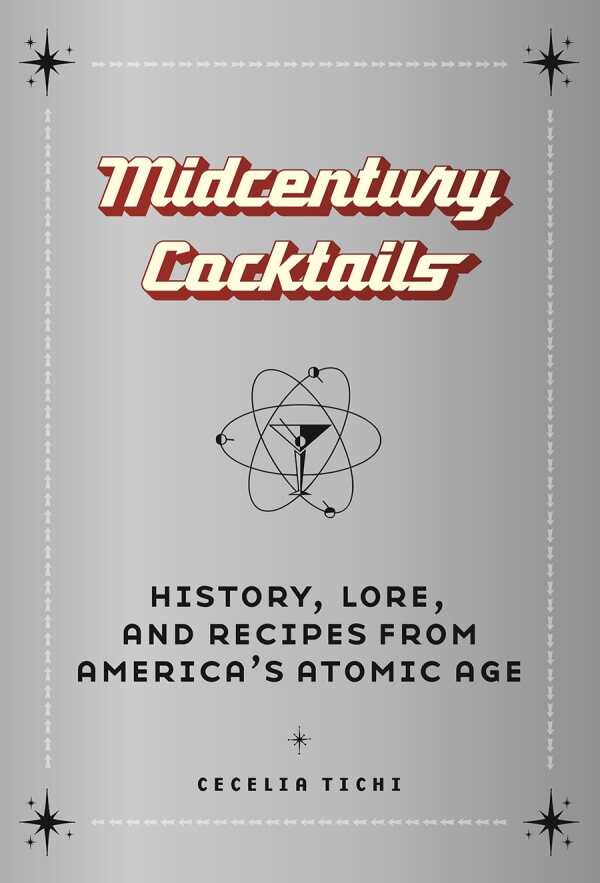Midcentury Cocktails
History, Lore and Recipes from America's Atomic Age
Cecelia Tichi’s Midcentury Cocktails blends history, literature, and cultural critiques to address trends in alcohol and entertainment in the 1950s and 1960s.
Despite what jokes about Baby Boomers suggest, the 1950s and 1960s were not a homogeneous time in the US. The alcohol culture of the period revealed tensions between Cold War industries, road-tripping beatniks, postwar disgruntled housewives, and the first Playboy bunnies. The same decades that birthed McCarthyism also paved the way for a tiki craze. These cultural strains are apparent in the chosen drinks of the era, which range from martinis and Manhattans to sophisticated egg-white cocktails like the Clover Club.
Gender is a major theme, as is race. The distinction between men and women’s drinking habits receives attention, as does the Green Book, an early manual devoted to helping Black American travelers navigate which hotels and bars were more or less racist in the Jim Crow US. Literary luminaries including Ernest Hemingway and Sylvia Plath grace the pages, too, with their observations about American drinking habits. Breakfast at Tiffany’s receives its own chapter. If one desires educated drinking buddies, this book delivers them in spades, with wry humor to point out both people’s accomplishments and shortcomings.
Illustrations and recipe lists accompany each chapter; these are visual, flavorful ways to engage with the book’s cultural history lessons. Some of the recipes assume access to special ingredients like orzata and falernum, but one imagines that, in the generous American spirit of adventurousness, mixologists can improvise as needed.
Midcentury Cocktails is a delightful, nostalgic trip through the 1950s and 1960s with recipes for recreating Atomic Age intoxications.
Reviewed by
Jeana Jorgensen
Disclosure: This article is not an endorsement, but a review. The publisher of this book provided free copies of the book to have their book reviewed by a professional reviewer. No fee was paid by the publisher for this review. Foreword Reviews only recommends books that we love. Foreword Magazine, Inc. is disclosing this in accordance with the Federal Trade Commission’s 16 CFR, Part 255.

